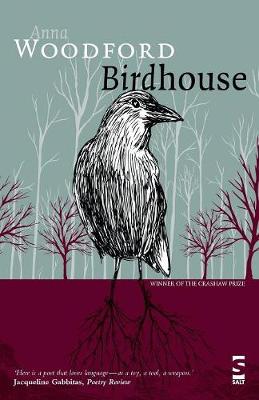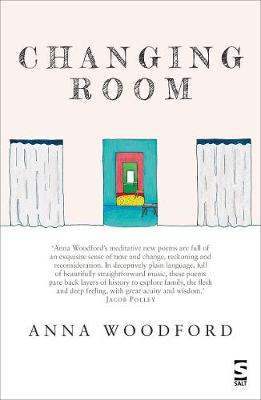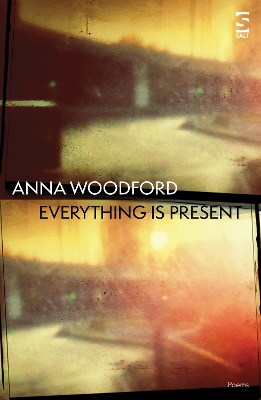Salt Modern Poets
3 total works
From diamonds hidden in a grandmother’s pantry to a peahen’s shout of ecstasy, from the voice of a deranged bridesmaid to that of a nun teaching a sex education lesson, Birdhouse is full of life – and its flip-side. It includes an award-winning sequence of elegies for the poet’s grandparents and great-grandparents who were victims of the holocaust (the sequence was a Poetry Book Society Choice).
Throughout this dazzling debut, Woodford explores sex, running away from school, and the happy ever after endings of Goldilocks and Eliza Doolittle. She takes a reader from Poland to Darlington on a dizzying scenic route involving graveyards and playgrounds. Along the way she celebrates a dead pigeon, a washing line, a big bed scene and an endless pair of legs. Her poems speak directly to a reader. Intimate and compelling. Casually artful. They stir up time and place to dissolving point, honouring the material word but not taking it for what it is. Or isn’t.
Woodford has received an Eric Gregory Award, an Arvon/Jerwood apprenticeship, a Hawthornden Fellowship, a major Leverhulme grant and is a previous winner of the International Poetry Business Competition. Widely published in magazines and anthologies, she has completed residencies in Alnwick Garden, Durham Cathedral and the Tyne & Wear Fire and Rescue Service. Her work has been described by Anthony Rudolf as ‘tough-minded and tender-hearted’.
From cramped cubicles to rented bedrooms, hallways that become highways in the sleepless hours, to the space and beauty of a shrine; Woodford’s award-winning poems revisit old rooms and find new ones following the birth of a child and the passing of time in the family home and beyond.
There are ship rats, bedsocks, KitKats and, in the poem ‘Work’, which was a Ledbury prize winner, the Post-it notes and endless afternoons of office life. Changing Room includes poems from Woodford’s Leverhulme residency at Durham Law School, as well a sequence on ageing and getting out, which appeared on buses in the North of England and as part of a touring exhibition in libraries.
Poems within Everything is Present have won The Ledbury Competition, The Wigtown Prize, and were featured in The Forward Book of Poems of the Year.
‘As brave, as bravura, a performance as the ill-advised, little-known acts it celebrates, this is both a lament and a defiant affirmation of an individual’s life.’ Phillip Gross, Ledbury Prize
‘A stark and timely reminder of how there is always some level of choice when it comes to traditions and symbols, and the significant role this choice has in harming or healing our collective and individual relationships with the past.’ Roseanne Watt, Wigtown Prize
Everything is Present is a mid-life coming of age tale. The back to front narrative is divided into three sections, End, Middle and Beginning. Poems explore the effect of grief and ageing and the ability of these two to alter the past as well as the present. The title comes from a Buddhist meditation referring to the non-linear nature of time as well as its gift.
The first section End contains award-winning elegies for a mother who died on a locked-down ward during the pandemic and a grandfather who escaped from Nazi-occupied Lwów (then in Poland, now the Ukraine). There is also a Ledbury-winning poem describing a Jerry Lee Lewis- loving father’s visit to A&E. The second section Middle negotiates the shifting ground of middle age exploring women’s bodies, work, therapy and the consolations of love and spirituality in poems featuring amusement arcades, train derailments and Allen Jones’ controversial women as furniture sculptures. Beginning revisits youthful sex, running away from home and Happy Shopper before embracing middle aged sex and then returning in a (never) ending to the mother.


